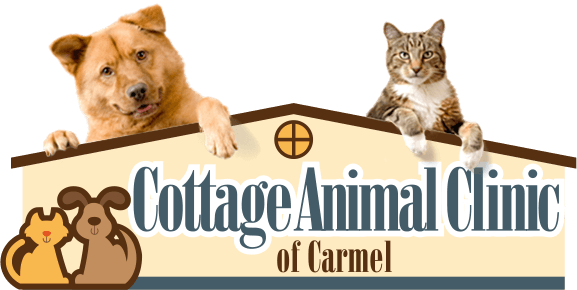Are Lawn & Garden Fertilizers Safe For Dogs? Your Carmel Veterinary Clinic Explains
Just like your dog, plants need food. The easiest way we provide food to our plants is by adding fertilizer. Many of the fertilizers we use on our lawns and other plants can also contain certain herbicides for kill or prevent weeds. Other plant fertilizers can be mixed with insecticides as well for grubs and other pests. A common question I hear from pet owners at our Carmel veterinary clinic is: “Are lawn & garden fertilizers safe to use around dogs and cats? What symptoms would fertilizers cause in pets?”
The majority of plant fertilizers are simply a mix of nitrogen, phosphate, and potassium. These organic compounds usually cause no harm to our pets if they are used properly. However, they can cause a lot of damage to your dog’s intestinal tract if ingested in large quantities causing vomiting and diarrhea. So always read the package carefully before applying anything to your lawn or plants in your backyard. Many fertilizers contain ingredients your dog might find tasty. Keep all your fertilizers and other lawn chemicals carefully labeled, and stored in a tightly sealed container. The liquid applications should be allowed to dry before your pet goes back onto the lawn. For the granular lawn fertilizers, I always recommend you water your lawn or plants after application, then allow them to dry before you allow your dog or cat to go near them. If your dog simply walks through a yard that has been fertilized, you most likely won’t see any symptoms. But remember, your dog may lick his/her feet when you get home, so wipe their feet off or simply give your dog a bath to help reduce exposure to any lawn chemicals.
Which lawn fertilizers are the most dangerous to dogs? At our Carmel veterinary clinic, the biggest lawn and garden fertilizers that cause serious problems for dogs and cats are blood meal, bone meal, and rose & plant fertilizers mixed with insecticides. Blood meal is an holistic nitrogen source that can cause vomiting, diarrhea, inflammation of the pancreas, and sometimes iron toxicity if ingested. Bone meal is simply ground up bones that dogs often can dig up and eat large quantities of causing a cement-like compaction in the stomach that requires surgery to correct. Most rose and plant fertilizers do not contain insecticides, but some contain organophosphates which can cause salivation, urination, defecation, seizures, even death.
Avoid a trip to our Carmel veterinary clinic from lawn & garden fertilizers by reading the label carefully, following the directions thoroughly, storing fertilizers properly, and keep your dog and cat out of the area after application. For more information on our Caring Hands Compassionate Hearts, click on this link to your Carmel Veterinary Clinic.






